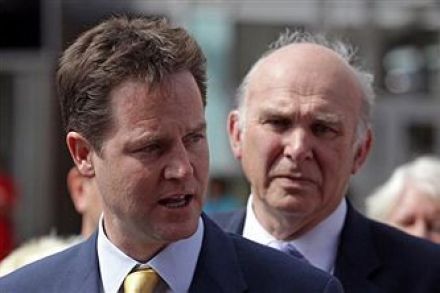Making the NHS a battle ground
Lord Rennard, the Lib Dems’ former chief executive and campaign supremo, is a frequent attendee at Westminster events. He usually makes just one point: the party’s polling may be poor, but the situation can be saved. Rennard points out that the party was delivered from disaster in 1997, thanks to targeted campaigning and a successful scheme to differentiate the party from Labour and the Tories. That campaign should be the model for the next one, which Rennard believes has already begun. He has elaborated on these ideas in the Guardian. He writes: ‘I always told candidates to think as much about the psychology of Maslow’s “hierarchy of needs” as any















